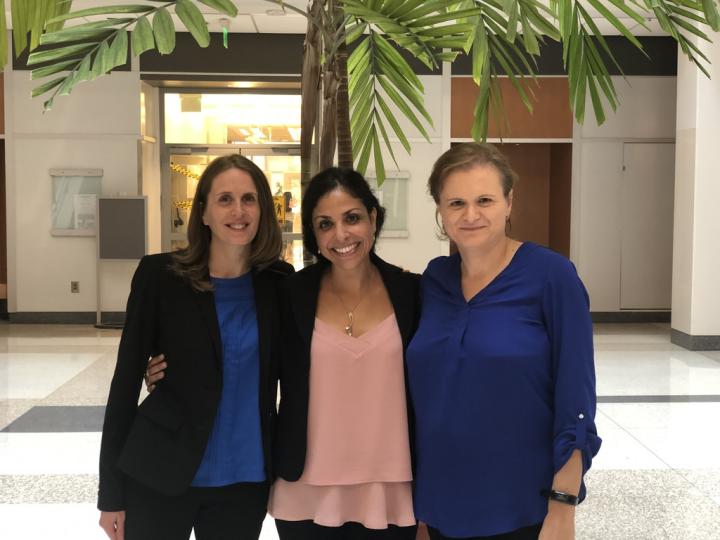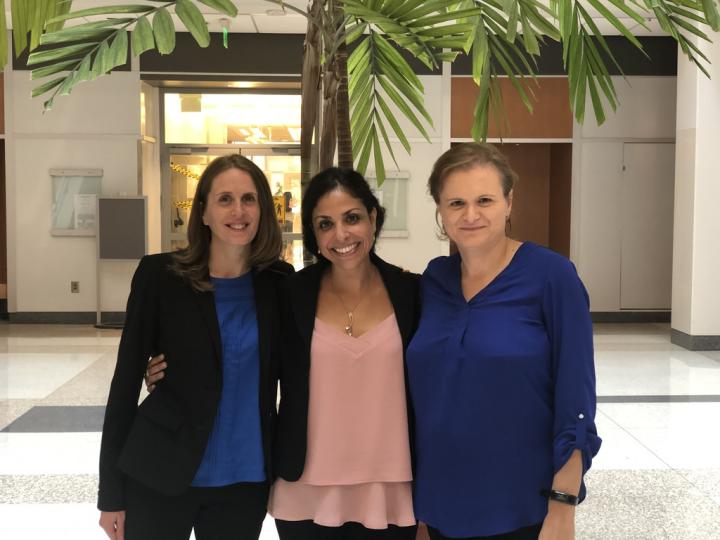
Credit: UNC School of Medicine
It has been well established that HIV transmission can be efficiently halted by effective treatment of those infected or by pre-exposure prophylaxis of individuals at risk of exposure. However, the effectiveness of these approaches to prevent HIV transmission require strict adherence to dosing regimens. Lack of adherence represents a major challenge to the implementation of HIV prevention efforts. Researchers at the UNC School of Medicine have been awarded a 5-year, $3.8 million grant from the National Institute of Allergy and Infectious Diseases to develop next generation, ultra-long-acting antiretroviral formulations for HIV treatment and prevention that have the potential to dramatically improve adherence.
This new grant will enable UNC investigators to continue and expand upon a line of work that began in 2017 with a separate, $1.8 million grant from the National Institutes of Health. In that project, Martina Kovarova, PhD, and Rahima Benhabbour, PhD, developed a new implantable drug delivery system for long-lasting HIV prevention that has shown promise in testing with animal models.
The injectable formulation includes an anti-HIV drug, a polymer, and a solvent. The three-compound liquid solidifies into an implant once injected under the skin. As the polymer slowly degrades, the drug is released. A preliminary study found that the implant delivered the drug effectively for five months. Also, this research demonstrated that the implant can be quickly and safely removed, if needed, in case of an adverse reaction or other medical emergency.
In addition to Kovarova, assistant professor of infectious diseases at the UNC School of Medicine, and Benhabbour, an assistant professor in the UNC-NCSU joint department of biomedical engineering, a key collaborator in the new project is Angela Wahl, PhD, an assistant professor of infectious diseases at the UNC School of Medicine.
"Our long-term goal for this collaborative is to develop a delivery system for long-acting therapy and PrEP that can offer durable and sustained viral suppression and protection from HIV transmission while providing flexibility in the choice of active ingredient, high efficacy of HIV inhibition, and increased user compliance," Wahl said.
"Using state of the art in vivo models of HIV transmission, we will evaluate the efficacy of these formulations for treatment. In addition, we will also test their efficacy for HIV prevention against all four major routes of HIV transmission: rectal, vaginal, oral, and intravenous," said co-investigator J. Victor Garcia, PhD, the Oliver Smithies Investigator, professor of Medicine, and a member of the UNC Institute for Global Health and Infectious Diseases, the UNC Center for AIDS Research, and the UNC Lineberger Comprehensive Cancer Center.
###
Media Contact
Tom Hughes
[email protected]
984-974-1151
@UNC_Health_Care





